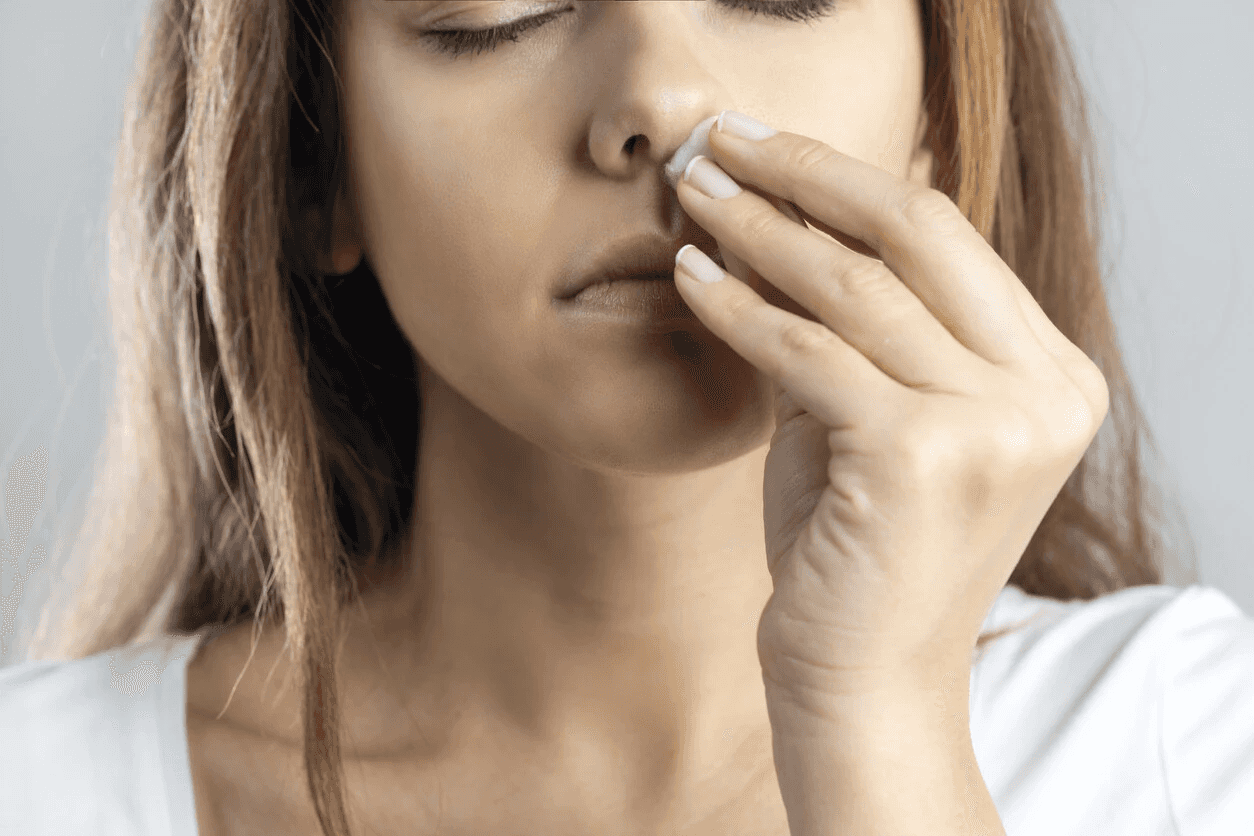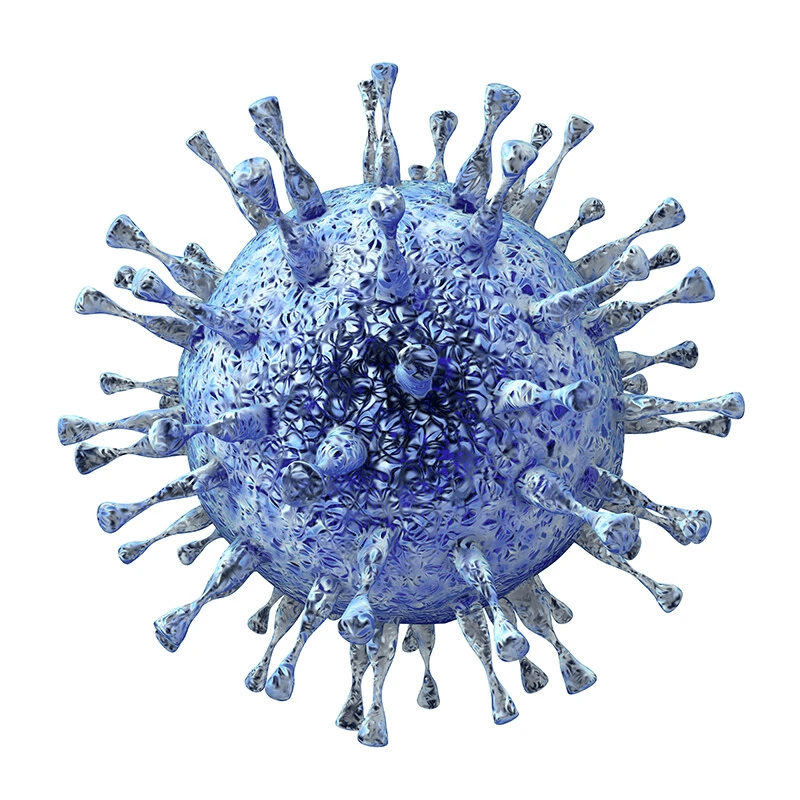Cold sores can appear inside your nose or around it, causing redness and small blisters, similar to cold sores. Both are caused by the virus (HSV-1 and HSV-2). While they can be irritating, cold sores in the nose are often painful — and in rare cases, may lead to more serious health issues.
Cold Sore
Treatments
Nasal Cold Sore: What Is It and How Can You Treat It?

- Cold sores inside your nose can be uncomfortable
- They are contagious but treatable with creams and patches
- Wash your hands often to avoid spreading the virus
Jump to:
Cold Sore on the nose – what is the trigger?
- HSV-1, which typically causes facial outbreaks
- HSV-2, which affects the lower body
- A weakened immune system
- Sun exposure
- Stress or fatigue
- Hormonal changes
- Illnesses like the flu or colds

Woman with a tissue in her nose, possibly experiencing and managing symptoms of cold sore on the nose.
What are the symptoms of cold sores on the nose?
- Itching, burning, or tightness on the nose or inside the nostrils
- Redness and small cold sores filled with contagious fluid appear
- After a couple of days, the blisters burst and release fluid
- The sores dry out, form a crust, and begin to heal
How is cold sore on the nose treated?
- The blisters haven’t healed after two weeks
- You’re getting cold sores more than every couple of months
- The blisters are spreading or affecting your mouth or nose lining
- You’re feeling generally unwell
- You have a health condition like AIDS, eczema, or are going through treatments like chemotherapy
Can cold sore patches also be used on the nose?
Are cold sores on the nose dangerous?

3D illustration of the herpes simplex virus, which can cause cold sores on the nose
Are cold sores on the nose contagious?
How can you prevent cold sores on the nose?
Avoid kissing
Avoid Sharing Personal Items
Washing hands
Strengthen the immune system
- Reduce stress
- Get enough sleep
- Enjoy a diet rich in vitamins, especially with fruits and vegetables high in vitamins C, A and D
- Include zinc-rich foods such as legumes
- Ensure you get plenty of fibre
Which home remedies help against nasal cold sore?
Home remedies for cold sores on the nose – yes or no?
Can nasal cold sores spread to other parts of the body?
Sources:
Líbí se vám tento článek?
Ohodnoťte tento článek, pokud vám pomohl.
